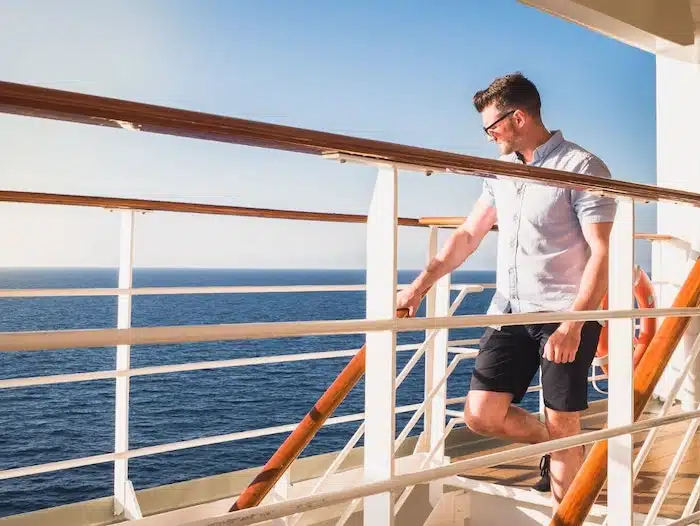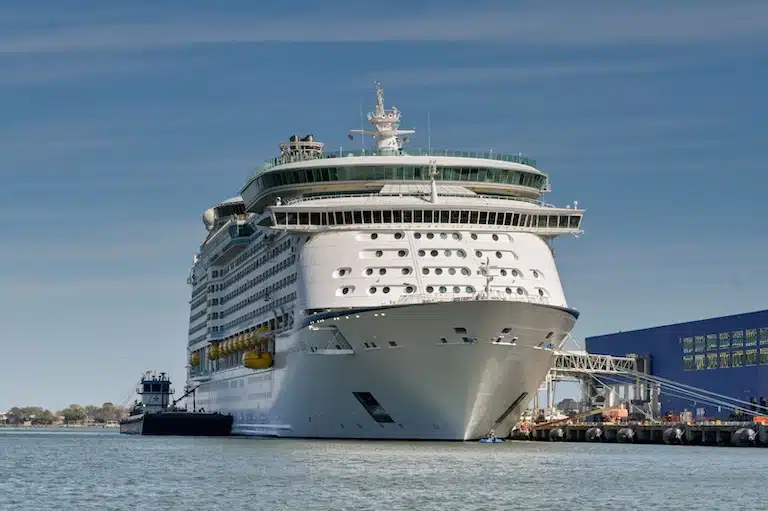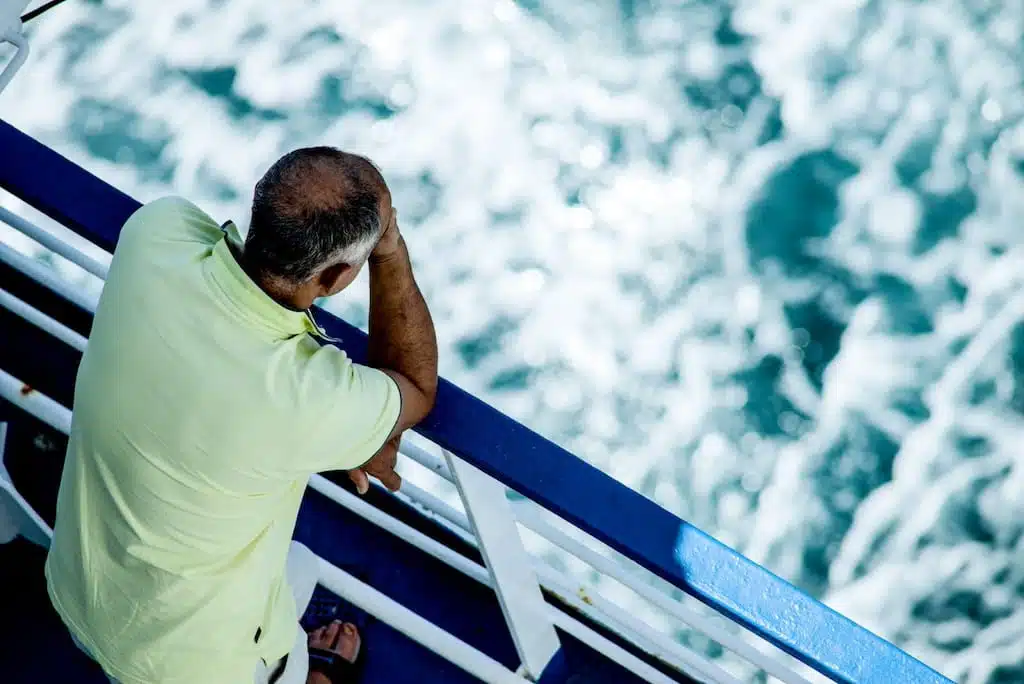We Have Handled Over 1000 Rape and Sexual Assault Cases on Cruises
Lipcon, Margulies & Winkleman, P.A., headquartered in Miami, FL, are the nation’s leading cruise ship accident lawyers. We have been fighting for the rights of victims of cruise ship sexual assaults for over 50 years. We are dedicated to helping our clients recover the compensation they deserve after traumatic incidents caused by someone else’s negligence. With 16 attorneys in 7 offices nationwide — including our main Miami office — countless awards and accolades, and over $500 Million and counting recovered for our clients since we first began the firm in 1971, it is no surprise that Lipcon, Margulies & Winkleman, P.A. has been named to “Best Law Firms”® by US News & World Report since 2016, and 5 of our attorneys named to “Best Lawyers”®. We also take great pride in celebrating the achievements of Charles Lipcon (2020) and Jason R. Margulies (2025), who were both named “Lawyer of the Year” in Admiralty and Maritime Law for Miami, a rare lifetime achievement held by two members of our firm.
Policies and Regulations Pertaining to a Registered Sex Offender Boarding a Cruise Ship
Cruises are a popular vacation choice for many, offering a unique blend of relaxation, adventure, and luxury for most families. However, the question of whether registered sex offenders can go on cruises is a complex one, involving legal, ethical, and practical considerations.
The ability of registered sex offenders to go on cruises is a complex issue influenced by both legal requirements and the policies of individual cruise lines. Generally, cruise lines reserve the right to deny boarding to anyone who poses a safety risk to other passengers or violates their terms of service, which can include known sexual offenders.
In the United States, sex offenders must comply with federal and state laws that often require them to notify local authorities of their travel plans, including international travel. Failure to do so can result in legal consequences. Additionally, many cruise lines have their own policies regarding the boarding of registered sex offenders. Some cruise lines will deny boarding to individuals on sex offender registries to ensure the safety and comfort of all passengers. For example, Carnival Cruise Line and Royal Caribbean have policies that may prohibit boarding for individuals listed on sex offender registries, particularly if the offenses involve minors or are recent. However, enforcement and screening procedures vary widely across cruise companies within the industry. Sadly, there is no universal standard.
Maritime Laws and Cruise Line Policies Affecting Passenger Eligibility
Passenger eligibility on cruise ships is governed by a combination of maritime laws, international regulations, and individual cruise line policies. These frameworks work together to ensure the safety, security, and lawful conduct of all passengers aboard.
Maritime Laws
Maritime law, also known as admiralty law, governs activities on navigable waters and includes regulations related to passenger safety and conduct. While there is no single international law specifically addressing the eligibility of passengers based on criminal history, cruise ships must comply with the laws of the countries whose waters they navigate and the ports they visit. This means that passengers who are prohibited from entering certain countries due to criminal records — such as sexual offenses — may be denied boarding or disembarkation rights. Additionally, U.S. laws, including those enforced by the Coast Guard and Customs and Border Protection, can impact passenger eligibility, especially for cruises departing from or returning to U.S. ports.
Cruise Line Policies
Each cruise line establishes its own policies regarding passenger conduct and eligibility. These policies often include provisions allowing the cruise line to refuse boarding or remove passengers who pose a threat to the safety or well-being of others. Many cruise lines conduct background checks or screen passengers against sex offender registries, particularly for voyages involving U.S. ports. Known sexual offenders may be denied boarding if the cruise line determines their presence could compromise onboard safety or violate terms of service. Furthermore, cruise lines reserve the right to refuse passage to anyone who fails to comply with their rules or who is subject to travel restrictions such as parole or probation conditions.
International Megan’s Law
International Megan’s Law (IML) is a U.S. federal law enacted in 2016 designed to prevent child exploitation and other sexual crimes by providing advanced notification to foreign countries when registered sex offenders travel internationally. Specifically, it requires the U.S. government to notify destination countries when a known sex offender — particularly those convicted of offenses against minors — plans to travel abroad. This helps foreign law enforcement agencies monitor or restrict the travel of these individuals to protect children worldwide.
Key features of IML
Advanced Notification: The U.S. Department of Homeland Security, through the Angel Watch Center, alerts foreign governments about the travel plans of covered sex offenders.
Passport Restrictions: The law allows the U.S. State Department to revoke or deny passports to sex offenders who fail to have a unique identifier on their passports, making it harder for them to travel undetected.
Global Child Protection: By sharing information internationally, IML aims to reduce the risk of child exploitation across borders.
These laws and policies can be complex and vary depending on the cruise line and itinerary. As such, consulting experienced cruise ship lawyers — like those at Lipcon, Margulies & Winkleman, P.A. — is crucial for understanding your rights and obligations before booking a cruise.
How to Stay Safe on a Cruise
Before leaving port, we encourage all passengers to thoroughly research both the legal requirements and the specific policies of the cruise line they intend to travel with. This includes checking for any restrictions or bans that their chosen cruise line has in place.
Just like any other travel experience, it’s essential to be aware of your surroundings and take steps to ensure your safety, particularly from sexual predators. Here are some practical tips to help you stay safe from dangerous encounters with registered sexual offenders. This advice is particularly relevant in today’s cruising world where the prevalence of rapes and sexual assaults at sea continues to occur at an alarming pace.
1. Stay Aware and Vigilant on Cruise Ships
One of the most effective ways to protect yourself from registered sex offenders is to remain aware of your surroundings on cruise ships. Familiarize yourself with the layout of the cruise ship, including emergency exits and security stations. Always be mindful of who is around you, especially in less crowded areas of the cruise ship or during late hours.
2. Travel in Groups to Protect Yourself from Registered Sex Offenders
There is always safety in numbers on cruise ships. Whenever possible, travel with friends or family members, especially when exploring the cruise ship or visiting ports of call. Sexual offenders are less likely to target individuals who are in groups. This advice is even more important for minors. Do not think they are safe on the ship to wander alone. Treat a cruise ship like you would any major city.
3. Keep Your Cruise Line Cabin Secure
Always lock your cruise ship cabin door, even when you are inside. Use the peephole to identify visitors before opening the door. If your cabin has a balcony, ensure that the balcony door is also securely locked.
4. Be Cautious with Alcohol on Cruise Lines
While enjoying a drink is part of the vacation experience for many, it’s important to drink responsibly. Excessive alcohol consumption can impair your judgment and make you more vulnerable to sexual assault. Never accept drinks from strangers, and always keep an eye on your drink to prevent tampering.
5. Use the Buddy System on Cruise Ships
When attending events or activities on the cruise ship, use the buddy system. Ensure that someone knows your whereabouts and expected return time. This way, if something goes wrong, someone will be aware and can take action.
6. Report Suspicious Behavior to Cruise Ship Personnel
If you notice any suspicious behavior or feel uncomfortable, report it to cruise ship security immediately. Cruise lines have security personnel trained to handle such situations, and it’s better to err on the side of caution.
7. Stay in Well-Lit and Populated Areas
Avoid isolated or poorly lit areas of the cruise ship, especially at night. Stick to well-populated areas where there are other passengers and crew members around.
8. Trust Your Instincts
If something doesn’t feel right, trust your instincts. Leave the situation and seek help if necessary. Your safety is more important than being polite or worrying about overreacting.
9. Educate Yourself on Cruise Line Policies
Before embarking on your cruise, familiarize yourself with the cruise line’s policies regarding safety and security. Knowing what measures are in place and how the cruise line handles incidents can provide peace of mind and help you take appropriate action against sex offenders if needed.
10. Know Your Rights If You’ve Experienced a Sex Crime
Understand your rights as a cruise ship passenger. If you are a victim of a sex crime, report it to ship security and local authorities at the next port of call. Seek medical attention and preserve any evidence that may be needed for an investigation.
Seek Legal Advice if You’re the Victim of Sexual Crimes
If you experience an incident, consider seeking legal advice. A lawyer specializing in cruise ship incidents can provide guidance on your rights and help you navigate the legal process if you decide to pursue a claim.
Contact Our Team of Experts if You’ve Been the Victim of Sexual Assault
Cruise vacations should be enjoyable and stress-free, but it’s important to take steps to protect yourself from potential dangers, including sexual predators and sexual assault. By staying vigilant, traveling in groups, securing your cabin, and following the other tips outlined above, you can significantly reduce your risk of experiencing sexual crimes and enjoy a safe and memorable cruise experience.
Consult with one of our experienced cruise ship rape lawyers to determine if you should moveforward with a case against a registered sex offender. You can reach out to us at our Miami Headquarters, or one of our other 7 offices nationwide, by calling the toll-free number: 877-233-1238 or by filling out our online contact form. We can also be reached from overseas and offer all clients a free case evaluation.
Published on July 31, 2024
Categories: Cruise Ship, Cruise Ship Rape & Sexual Assault
Get Free
Consultation














